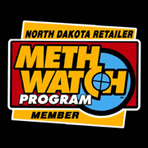DESIGNATING AGENT OF PRACTIONER FOR COMMUNICATING CONTROLLED SUBSTANCE PRESCRIPTIONS TO PHARMACY
This policy statement outlines the proper role of agents in those situations where an individual practitioner and an individual agent [including a LTCF Nurse, a RN or LPN] have taken affirmative steps to establish a valid agency relationship for those aspects of the CSA that may be appropriately executed by an authorized agent under Federal Law. As such, the DEA is hereby outlining a suggested mechanism to establish a valid agency relationship as well as explaining the appropriate roles an authorized agent may play regardless of the setting.
To be consistent with the purpose of the CSA to implement a “closed system” of distribution and for DEA to enforce this framework, an agency relationship between a registered individual practitioner and an identified agent for the purposes of communicating controlled substance prescriptions must be explicit and transparent. Written authorization of an agent is recommended.
DEA recommends that the original signed agency agreement be kept by the practitioner during the term of the agency relationship and for a reasonable period after termination or revocation.
DEA requires that inventory and other records be kept for at least two years (21 U.S.C. 827(b), 21 U.S.C. 828(c), 21 CFR 1304.04). This is simply a suggested time period for retention of agency agreements and is not required by DEA. A signed copy should also be provided to the practitioner’s designated agent, the agent’s employer (if other than the practitioner), and any pharmacies that regularly receive communications from the agent pursuant to the agreement. Providing a copy to pharmacies likely to receive prescriptions from the agent on the practitioner’s behalf may assist those pharmacies with their corresponding responsibility regarding the dispensing of controlled substances. It is important to reiterate that a pharmacist always has a corresponding responsibility to ensure that a controlled substance prescription conforms with the law and regulations, including the requirement that the prescription be issued for a legitimate medical purpose by a practitioner acting in the usual course of professional practice, and a corresponding liability if a prescription is not prepared or dispensed in a manner consistent with the CSA or DEA regulations. Even where the pharmacist has a copy of an agency agreement, the pharmacist may also have a duty to inquire further depending upon the particular circumstances. Because the agency agreement may be revoked at any time by the practitioner or by the agent, the party terminating the agreement should notify the other party immediately upon termination. The practitioner should notify those pharmacies that were originally made aware of the agency agreement of the termination of that agreement. In most circumstances where an agent changes employment, the agreement should be revoked.
It is in the best interests of the practitioner, the agent and the dispensing pharmacist that the designation of those persons authorized to act on behalf of the practitioner and the scope of any such authorization be reduced to writing.
The agreement should be clear that the agent may not further delegate the outlined responsibilities.
Click here for a sample of the Designated Agent to Communicate Controlled Substance Prescriptions to Pharmacies form (349 KB PDF).








